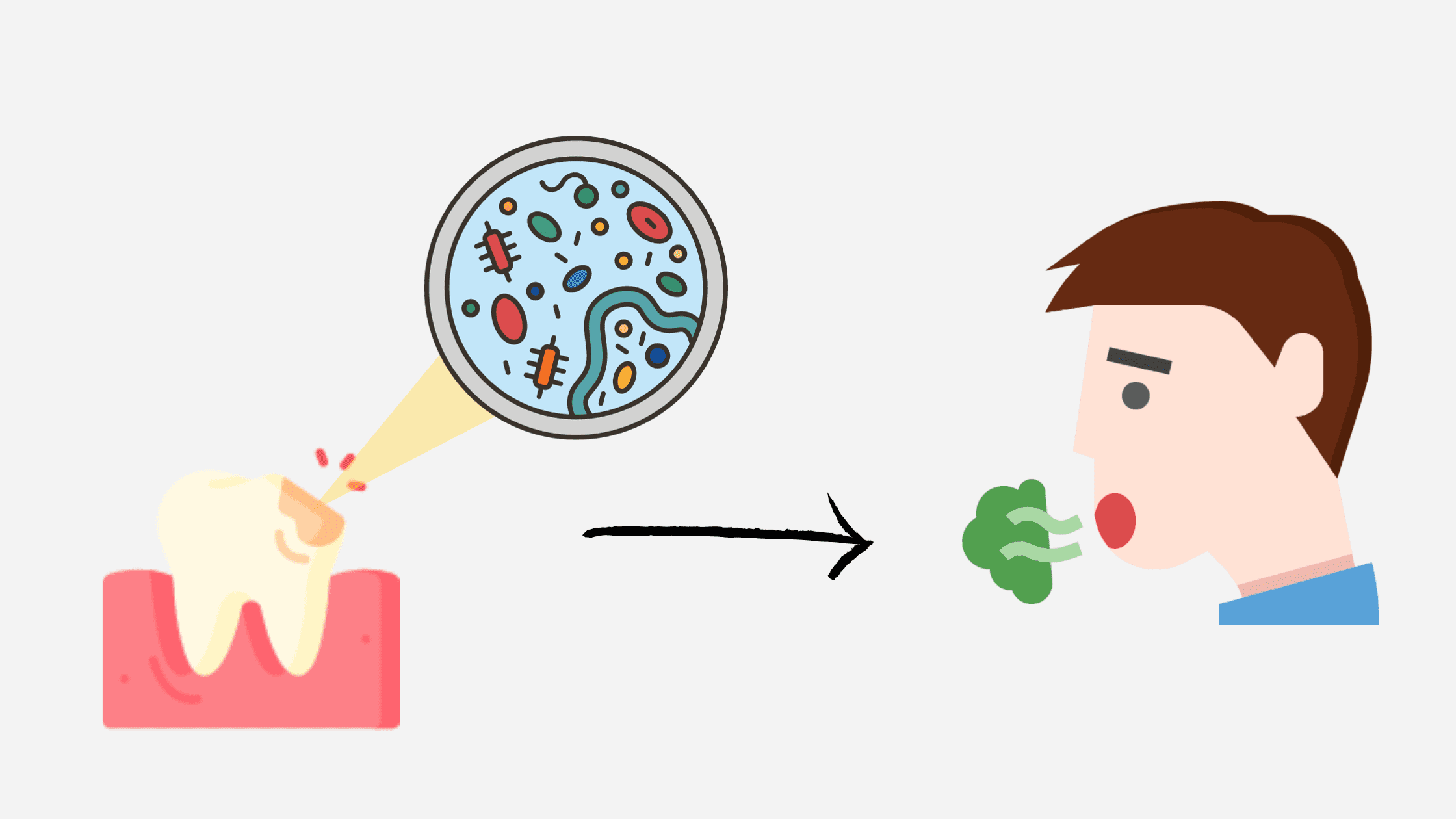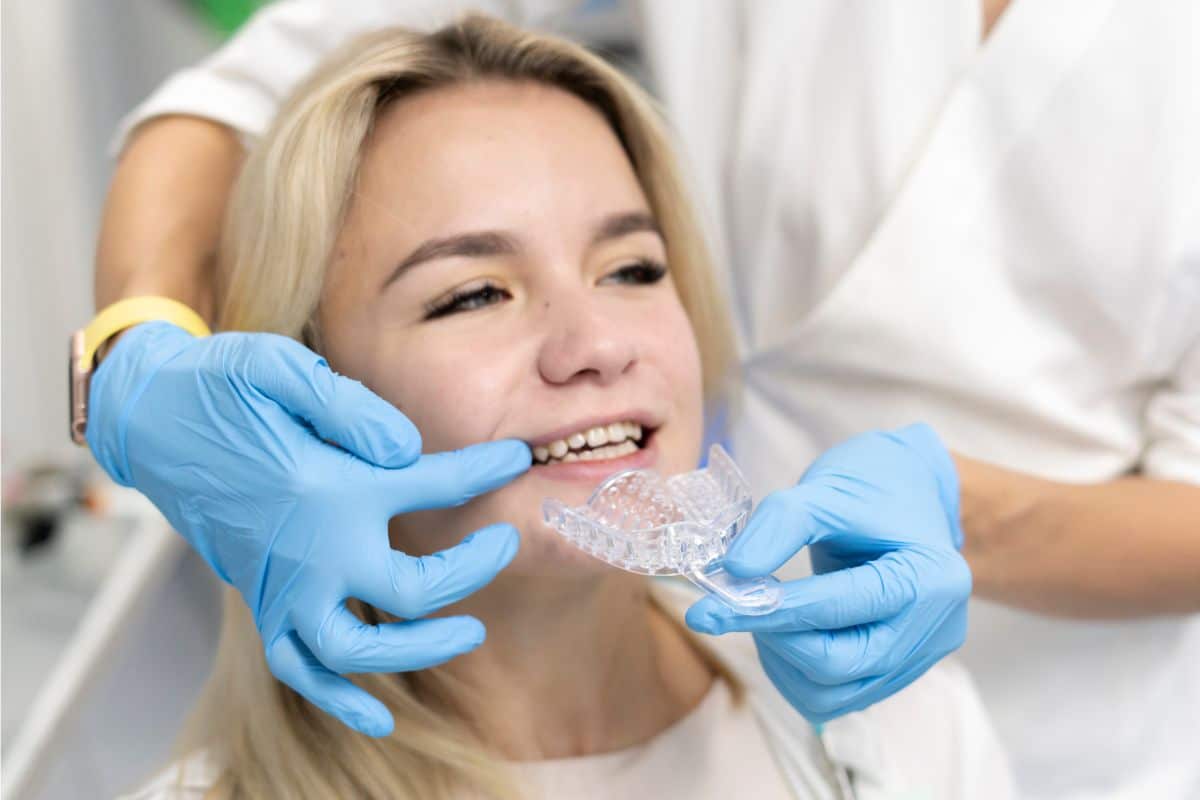Tooth Cavity Smell: Find Relief With Expert Help

The unpleasant and often embarrassing issue of tooth cavity smell can be a significant source of distress for individuals affected by it. This condition, medically known as halitosis, can Stem from a variety of factors, including poor oral hygiene, bacterial accumulation, and in some cases, underlying health issues. Understanding the root causes of tooth cavity smell is crucial in finding effective relief and treating the condition comprehensively.
Problem-Solution Framework: Addressing Tooth Cavity Smell
At the heart of tooth cavity smell lies the decomposition of food particles and the accumulation of bacteria within the oral cavity. When food, especially carbohydrates and sugars, is not properly cleaned from the teeth, it can lead to the formation of plaque—a sticky film of bacteria. Over time, this plaque can harden into tartar, which not only contributes to bad breath but also accelerates tooth decay and gum disease. The solution to this problem involves a multi-faceted approach that includes improved oral hygiene practices, professional dental care, and in some instances, addressing underlying health conditions.
Improved Oral Hygiene Practices
Regular Brushing and Flossing: The foundation of preventing tooth cavity smell is regular and thorough cleaning of the teeth. Brushing at least twice a day with a fluoride toothpaste and flossing once a day can significantly reduce the accumulation of plaque and tartar. It’s also essential to pay special attention to the gum line and the areas between teeth where food particles and bacteria often accumulate.
Tongue Scraping: The tongue can harbor a significant amount of bacteria, which can contribute to bad breath. Using a tongue scraper daily can help remove these bacteria and freshen the breath.
Mouthwash: Rinsing with an antibacterial mouthwash can provide additional protection against bacteria and help control plaque. However, it’s crucial to choose a mouthwash that carries the American Dental Association (ADA) Seal of Acceptance, ensuring its safety and effectiveness.
Professional Dental Care
Regular visits to a dentist are indispensable in preventing and treating tooth cavity smell. A dentist can:
- Provide Professional Cleaning: Regular dental cleanings can remove tartar and plaque that brushing and flossing might miss, helping to prevent tooth decay and gum disease.
- Identify Underlying Issues: Dentists can diagnose issues such as tooth decay, gum disease, or other oral health problems that might be contributing to bad breath.
- Offer Personalized Advice: Based on the individual’s oral health, a dentist can provide tailored advice on how to improve oral hygiene and prevent future occurrences of tooth cavity smell.
Comparative Analysis: Home Remedies vs. Professional Treatment
While there are numerous home remedies touted to alleviate tooth cavity smell, such as chewing on parsley or cloves, or using certain essential oils, these methods might offer temporary relief at best. In contrast, professional dental treatment addresses the root causes of the issue, providing a more lasting solution. For instance, a comparison of the effectiveness of:
- Hydrogen Peroxide Mouthwash vs. Professional Dental Cleaning: Hydrogen peroxide can help kill bacteria and reduce plaque, but it cannot replace the thoroughness of a professional dental cleaning in removing tartar and addressing gum disease.
- Oil Pulling vs. Regular Brushing and Flossing: Oil pulling, which involves swishing oil in the mouth, has been suggested to reduce bacteria. However, it is not a substitute for regular brushing and flossing, which are more effective in cleaning the teeth and preventing the accumulation of plaque.
Historical Evolution of Understanding Tooth Cavity Smell
The understanding and treatment of tooth cavity smell have evolved significantly over time. Historically, bad breath was often viewed as a personal hygiene issue, with less emphasis on its connection to oral health. However, as dental research progressed, it became clear that tooth decay, gum disease, and other oral health issues are primary contributors to bad breath. This shift in understanding has led to more effective treatments and preventative measures, focusing on improving oral hygiene and addressing underlying oral health conditions.
Expert Interview Style: Insights from a Dentist
When consulting with a dentist about tooth cavity smell, several key points emerge:
- Early Intervention: The sooner the issue is addressed, the better. Early intervention can prevent the progression of tooth decay and gum disease.
- Comprehensive Oral Exam: A thorough oral examination is crucial in identifying all possible causes of bad breath, including issues that might not be immediately apparent.
- Customized Oral Care Plans: Based on the findings of the oral exam, a dentist can create a personalized plan for improving oral hygiene and treating any underlying conditions.
Future Trends Projection: Advances in Oral Health Care
The future of treating tooth cavity smell looks promising, with advancements in oral health care technology and a greater understanding of the microbiome of the mouth. Emerging trends include:
- Personalized Oral Care: With the help of genetic testing and microbiome analysis, oral care might become even more personalized, allowing for targeted treatments that address an individual’s specific oral health needs.
- Antimicrobial Therapies: Research into new antimicrobial agents and therapies could provide more effective ways to combat the bacteria that contribute to tooth cavity smell and other oral health issues.
- Preventative Measures: There is an increasing focus on preventative oral health care, including education on proper oral hygiene practices and the importance of regular dental check-ups in preventing issues like tooth cavity smell.
Technical Breakdown: Understanding the Science Behind Tooth Cavity Smell
The science behind tooth cavity smell is complex, involving the interplay of bacteria, food particles, and oral health. Key factors include:
- Bacterial Accumulation: The mouth is home to billions of bacteria, some of which can contribute to bad breath when they break down food particles.
- Volatile Sulfur Compounds (VSCs): The decomposition of food, especially proteins, by oral bacteria leads to the production of VSCs, which are responsible for the characteristic smell of bad breath.
- Oral Health Conditions: Conditions like tooth decay and gum disease can exacerbate bad breath by providing additional sites for bacteria to accumulate and multiply.
Myth vs. Reality: Common Misconceptions About Tooth Cavity Smell
Several myths surround tooth cavity smell, including the belief that it is solely a matter of personal hygiene or that mints and chewing gum can provide a lasting solution. In reality, while good oral hygiene is essential, tooth cavity smell often indicates underlying oral health issues that require professional attention. Furthermore, while mints and chewing gum might temporarily mask the smell, they do not address the root cause of the problem.
Decision Framework: Choosing the Right Approach for Your Oral Health
When deciding how to approach tooth cavity smell, several factors should be considered:
- Severity of the Issue: For mild cases, improving oral hygiene practices might be sufficient. However, more severe cases may require professional dental intervention.
- Underlying Health Conditions: If there are underlying health issues contributing to bad breath, these need to be addressed as part of the treatment plan.
- Personal Preferences and Lifestyle: The chosen approach should fit within the individual’s lifestyle and preferences, ensuring adherence and long-term success.
Resource Guide: Comprehensive Collection of Oral Health Information
For individuals seeking to understand and manage tooth cavity smell, the following resources can be invaluable:
- American Dental Association (ADA): The ADA website offers comprehensive information on oral health, including tips on preventing bad breath and finding a dentist.
- National Institute of Dental and Craniofacial Research (NIDCR): The NIDCR provides detailed information on oral health conditions, including tooth decay and gum disease, and the latest research in these areas.
- Local Dental Clinics: Consulting with a local dentist can provide personalized advice and treatment tailored to the individual’s oral health needs.
FAQ Section
What are the primary causes of tooth cavity smell?
+Tooth cavity smell is primarily caused by the accumulation of bacteria in the mouth, which can lead to the formation of plaque and tartar. Poor oral hygiene, diet, and underlying health conditions can contribute to this issue.
Can home remedies effectively treat tooth cavity smell?
+While home remedies might offer temporary relief, they are generally not effective in treating the underlying causes of tooth cavity smell. Professional dental care is usually necessary for a lasting solution.
How can I prevent tooth cavity smell in the future?
+Preventing tooth cavity smell involves maintaining good oral hygiene practices, such as regular brushing and flossing, using an antibacterial mouthwash, and visiting a dentist regularly for check-ups and cleanings.
In conclusion, tooth cavity smell is a complex issue that requires a comprehensive approach for effective relief. By understanding the causes, adopting good oral hygiene practices, and seeking professional dental care when necessary, individuals can not only alleviate tooth cavity smell but also maintain overall good oral health. Remember, the key to a healthy, fresh smile is a combination of self-care and professional attention, tailored to the unique needs of each individual.

